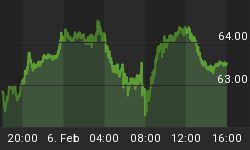The FDIC has only brought one case to date against executives of failed banks. Supposedly more charges are coming.
Bloomberg reports FDIC May Seek $1 Billion From Failed-Bank Executives
The Federal Deposit Insurance Corp. has authorized lawsuits against more than 50 officers and directors of failed banks as the agency aims to recoup more than $1 billion in losses stemming from the credit crisis.
The lawsuits were authorized during closed sessions of the FDIC board and haven't been made public. The agency, which has shuttered 294 lenders since the start of 2008, has held off court action while conducting settlement talks with executives whose actions may have led to bank collapses, Richard Osterman, the FDIC's acting general counsel, said in an interview.
"We're ready to go," Osterman said. "We could walk into court tomorrow and file the lawsuits."
The FDIC, which reviews losses for every bank failure, has brought only one case against officers or directors tied to recent collapses -- a suit filed in July seeking $300 million in damages from four executives of IndyMac Bancorp Inc.
The FDIC "brings suits only where they are believed to be sound on the merits and likely to be cost-effective," according to an agency policy statement that dates from the savings-and- loan crisis of the 1980s. That requires considerations of whether an individual, if sued, has the means to pay or an insurance policy to cover all or part of the claim.
"It doesn't make sense to file a lawsuit if at the end of the day you have a low chance of recovery," Osterman said.
"It's in both our interest and theirs to try and settle this matter before it gets into the court and we get into expensive litigation," he said.
Political Stunt to Placate the Public
I see this as little more than a political stunt to placate the public. These cases are unlikely to go to trial, on purpose, and not for the reason the FDIC says.
The FDIC does not want to rattle the banking system, so they won't. Instead they will settle most if not all of these cases for peanuts.
To make it look legit, the FDIC might pursue a couple of scapegoat cases, IndyMac being one of them, but don't expect anything more.
Criminal Fraud
"In the IndyMac case, executives are accused of granting loans that were unlikely to be repaid while seeking to benefit from the bank's compensation structure."
Excuse me but why isn't this criminal fraud?
Why isn't the SEC involved?
I believe all the executives from Dick Fuld on down are guilty of fraud. Indeed, there is a huge list of those who should be prosecuted for fraud.
Running List of Needed Criminal Investigations
It's time to update my rolling list of who should be criminally indicted and why.
April 29, 2010: Barofsky Threatens Criminal Charges in AIG Coverup, Goldman Sachs Abacus Deal, TARP Insider Trading; New York Fed Implicated
April 16, 2010: Rant of the Day: No Ethics, No Fiduciary Responsibility, No Separation of Duty; Complete Ethics Overhaul Needed
March 2, 2010: Geithner's Illegal Money-Laundering Scheme Exposed; Harry Markopolos Says "Don't Trust Your Government"
January 31, 2010: 77 Fraud, Money Laundering, Insider Trading, and Tax Evasion Investigations Underway Regarding TARP
January 28, 2010: Secret Deals Involving No One; AIG Coverup Conspiracy Unravels
January 26, 2010: Questions Geithner Cannot Escape
January 07, 2010: Time To Indict Geithner For Securities Fraud
October 20, 2009: Bernanke Guilty of Coercion and Market Manipulation
July 17, 2009: Paulson Admits Coercion; Where are the Indictments?
June 26, 2009: Bernanke Suffers From Selective Memory Loss; Paulson Calls Bank of America "Turd in the Punchbowl"
April 24, 2009: Let the Criminal Indictments Begin: Paulson, Bernanke, Lewis
We can safely add IndyMac and countless other bank executives to the list.
Token Search for Low-Profile Scapegoats Continues
To date, in spite of the myriad of possible targets, and even some threats from Barofsky and others, we have seen no real action. So why should we expect this to be any different?
At best, all we are likely to see is a token search for a couple of relatively low-profile scapegoats, and those will be settled out of court for peanuts, with bank executives laughing all the way.















